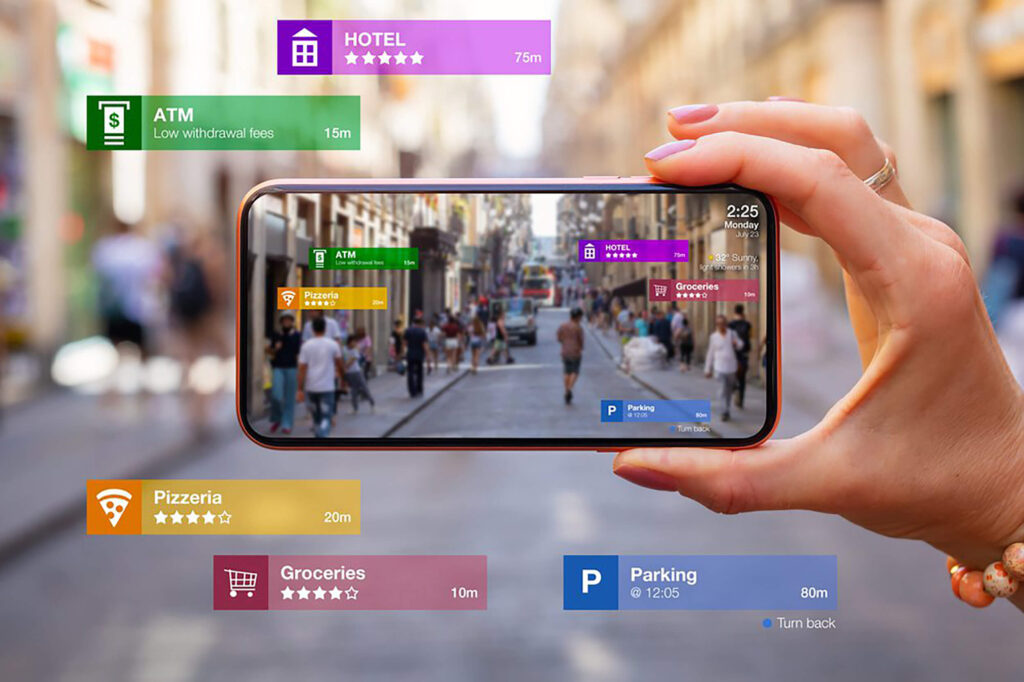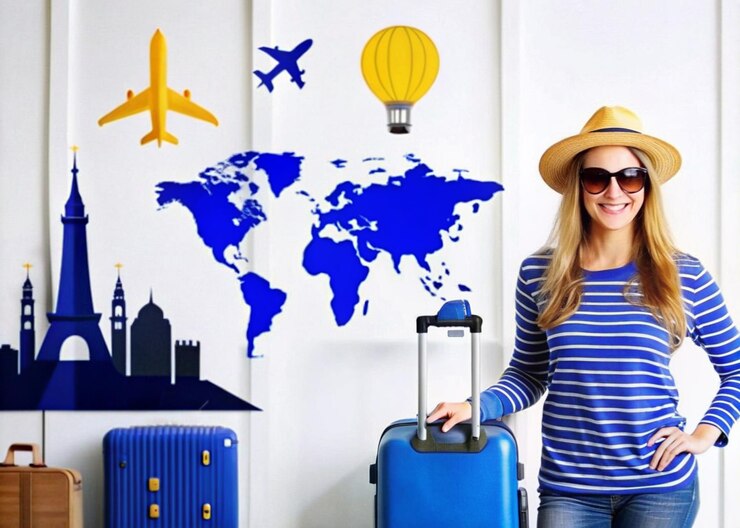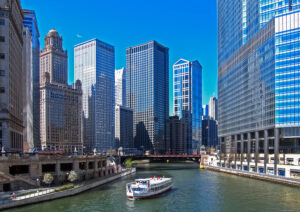
According to the statistics, the AR industry is expected to reach more than $77 billion by 2025, up $15 billion. This remarkable rise reflects the quality of the travel and tourism sector and our increased capacity to employ cutting-edge technology to explore new places.
Have you ever wished to have access to an advisor at all times? With Augmented Reality (AR), all it takes to gain more information on any location is for your phone or smart glasses to point at anything of interest – history, culture, and hidden gems of any destination are revealed with ease – it’s like having an expert travel companion always at hand making every trip better!
What Does it Mean by AR?
Augmented reality uses computer graphics and virtual reality tech, to superimpose digital content such as images, videos, or sounds onto real-world settings. AR adds interactive components that enhance our view of reality more than VR does by producing entirely manufactured environments that users cannot explore directly. AR glasses, smartphones, or tablets further enrich this experience for users.
Key Features of AR Apps for Travel and Tourism
Here are some highlights of the numerous helpful features available in augmented reality (AR) applications created primarily to improve travel and tourist experiences. These include interactive maps, virtual tours, language translation, and historical reenactments.
Interactive Maps
It provides passengers with real-time directions and information about neighboring sites. Travelers may use their smartphones to see digital signage superimposed into their surroundings instead of conventional paper maps, making it easier and faster to find locations of interest.
Virtual Tours
Virtual tours of AR allow tourists to explore historical landmarks and exotic landscapes virtually and learn more about them at their leisure through elements like movies, 3D photos, and audio guides.
Language Translation
Sometimes, language problems present a formidable obstacle when traveling abroad. Users can quickly and easily read menus, signs, and materials printed in multiple languages using real-time translation applications and augmented reality technology. This provides user confidence, and security perception increases when traveling abroad.
Individual Suggestions
AR applications provide customized travel experiences that cater to individual tastes and meet user interests by suggesting restaurants, sites, and activities based on geographical data and user choices. This personalization makes users feel special and catered to, enhancing their overall travel experience.
How AR Apps Are Transforming Travel and Tourism

Here are just a few ways that augmented reality applications are significantly changing the way we travel:
Enhance Tourism
With augmented reality (AR) technology, your travel experience becomes significantly more immersive. You can explore at your own pace, accessing multimedia information that breathes life into history and culture. You can delve deeper into your interests, which are no longer confined to guided tours or brochures.
Personal Travel Experience
With AR applications, tourists can craft their dream trip. AR will curate personalized content tailored to their interests—be it food, travel, art, or history. This level of personalization ensures that their trip is not just a journey but a unique experience.
Improved Accessibility
AR apps can be a great help for disabled passengers. By providing clear directions and audio information for visually impaired travelers, they make exploring new areas safer. To meet travelers’ demands, augmented reality (AR) can also provide information in various ways, creating a better travel experience for everyone.
Enhanced Partnerships
The goal of enhanced relationships is to make travel more engaging and enjoyable. Allowing you to engage with your environment actively makes a journey more memorable and satisfying than just soaking it all in passively.
Excellent Organization and Preparation
AR applications are a huge help when organizing and getting ready for trips. You can use augmented reality to plan your travel route, book accommodations, and even virtually ‘walk through’ your hotel room before you arrive. This allows you to make selections that will affect the caliber and pleasure of your journey with more knowledge than before.
Benefits of AR Apps for Travel and Tourism
Travelers and the tourist sector could reap considerable advantages from using AR apps in multiple ways, and here are just a few benefits:
For Travelers
- Improving user experience: Augmented reality (AR) seeks to improve visitor experience by overlaying digital data with physical reality.
- Enhancing convenience: Tools like interactive maps and real-time translations make navigation more accessible and less stressful, making it easier for everyone involved.
- Personalized Interactions: Augmented reality (AR) apps add a personalized and enriching element to travel experiences by providing customized recommendations based on your unique interests and preferences
For Tourism
- Application Tools: Augmented reality can be an attractive marketing strategy to bring in visitors and attract audiences, making augmented reality a must-have marketing asset today
- Enhance the experience: AR enhances the journey by providing educational content about historical sites and cultural attractions, which makes the journey more satisfying and allows you to learn about your destination. Many have reported the contents.
- Customer Satisfaction: AR may improve customer satisfaction and elicit good evaluations from users by enhancing navigation, offering helpful information, and creating an engaging experience for its users.
Future Trends in AR for Travel and Tourism
Exciting indicators of a bright future for augmented reality in travel and tourism exist. Some of the following things should be known.
Wearable AR Devices
Wearable augmented reality devices, especially AR glasses, have gained popularity due to their convenience and affordability. They provide users with hands-free augmented reality experiences, easy access to information, and interactive content, making daily tasks more manageable.
A Hybrid of AI and AR
Travel is now more innovative and personalized thanks to artificial intelligence (AI), which combines AR’s immersive presentation with the ability to analyze user data and provide customized recommendations. This ensures that every passenger feels satisfied in particular.
AR in Smart Cities
As contemporary cities evolve, augmented reality (AR) is set to play a crucial role. With AR, residents and tourists can navigate and enjoy urban experiences with ease, thanks to its real-time information on transit, events, and services, sparking excitement for the future of urban living.
The Hybrid of AR and virtual reality (VR)
Travelers may discover fascinating new ways to explore locations by combining AR and VR, including virtual travel experiences that blend immersive VR worlds with real-world exploration.
Wrapping it Up
Augmented reality (AR) has revolutionized the travel and tourist sector by offering unique and personalized experiences. From enhancing visitor attraction to improving navigation, enriching museum visits, facilitating language translation, and supporting local businesses through virtual efforts, AR offers a world of possibilities for creating rich, personalized travel experiences that cater to each traveler’s unique preferences.
As technology advances, this field is only expected to grow! Every technological advancement brings about more creative applications that influence its future growth, suggesting that new innovative applications related to travel and tourism will also arise when technology develops even more. Businesses looking to stay at the forefront of travel and tourism will benefit from investing in AR app development services as an invaluable way of staying competitive in this competitive sector.
AR is a crucial answer because it can provide travelers with immersive, distinctive, and captivating experiences that boost consumer satisfaction and local economies. For instance, AR can drive foot traffic to local businesses by offering virtual coupons or by enhancing the appeal of local attractions. AR may be the foundation for travel and tourism in the following years!







